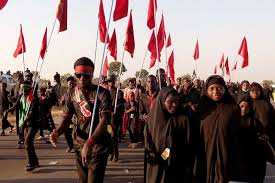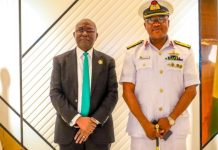Kano State Police Commissioner Mr Rabiu Yusuf disclosed that nine people were killed in clashes between Shi’ite Muslims and police during a religious procession in Kano on Monday
The clashes occurred on the outskirts of Kano, a city that bears the same name as the state, as members of Shi’ite group, the Islamic Movement in Nigeria (IMN), conducted an annual procession to Zaria in neighbouring Kaduna state.
It was the latest in a series of incidents involving the sect. A judicial inquiry in August reported that 347 IMN members were killed and buried in mass graves after clashes with the army in December 2015, and two sect members were killed in processions in Kaduna state last month.
Yusuf told reporters nine people died in Monday’s violence – eight IMN members and a policeman. He said several people were injured, including four police officers.
“At first we used tear gas on them. They attacked one of our personnel, who sustained a fatal injury,” he said.
Yusuf said IMN members used the dead policeman’s weapon to fire at officers and they had “no option” but to use live ammunition in response.
A spokesman for the IMN Ibrahim Musa, whose 1980s founders were inspired by the Islamic Revolution in Shi’ite Iran, said police had blocked the path of its members before unleashing tear gas and live ammunition on them. He said the IMN was a peaceful group.
Musa said “Throughout the nearly four decades of the existence of the IMN, it has never stockpiled, carried or used weapons,”
Last month the Kaduna state government declared IMN as an “unlawful society” on the grounds that its processions were a danger to peace, and said anyone convicted of being a member of the sect could be imprisoned for up to seven years.
Human Rights Watch estimates that IMN has around 3 million members. The sect’s leader, Sheikh Ibrahim Zakzaky, has been held without charge since December following the clashes with the army in Zaria.
Security analysts have drawn some parallels between the IMN and Boko Haram, the Sunni Muslim jihadist group whose insurgency began in 2009 after security forces killed hundreds of its members and its leader Mohammed Yusuf died in custody.
(Reuters)













